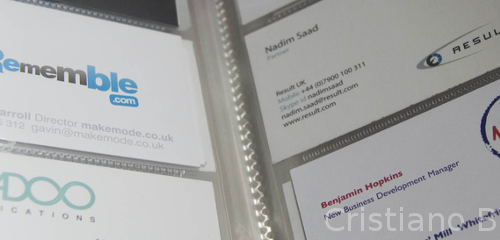
Will branding win you advocates?
A business creates its position in the market place by developing a Brand. The brand is its identity, based on its core competencies. It is how customers recognise it. Brand recognition comes through familiarity with the company logo, the livery on its vans, the style of its retail premises and its promotional literature.
But most of all, a brand is recognised by the experience it delivers. And that has to be consistent. Every experience of the company has to deliver the same kind of experience. Customers develop an expectation of the business, and the business must ensure that it regularly meets that expectation.
The paradox of branding is that you want to become generic (like Hoover, Sellotape or Coke) and you also need to identify the One Defining Element that distinguishes your company from all others. If you can achieve that, all competitors will be seen as followers or, at best, lookalikes.
The brand has value, just like a Google ranking. It determines where the company stands in the list of choices made by customers.
Innocent Drinks went from a standing start in 1999 to handing over to Coca Cola in 2010 for £100 million, selling their versions of a product (fruit smoothies) that they did not invent. However, they began with a cheeky tone of voice in communicating with their customers, who thought, “Good product, fun people.” That is now their trademark style, their brand.
A good marketing strategy is to create a strong brand, make it recognisable and then make it very well known. Customers believe that a well known brand is better than a less well known brand. That’s what is meant by brand equity.
Now let make a very important distinction between brand value and brand values. Brand value is the same as brand equity – the financial benefit of being better known than other alternatives, which may allow you to charge a premium for what you do or sell.
Brand values, however, are about why you are in business, and how you do your business. For example, the retailer Marks and Spencer has always made it their policy to accept the return of merchandise without question. That is their style and it reflects their values.
When your brand has a clear set of values, you attract customers and staff who share those values, and they form your tribe. Their reason for doing business with you goes beyond the transaction’s value. Doing business with you becomes an expression of themselves, and they become your advocates. That should be your main purpose in marketing – to cultivate advocates.




